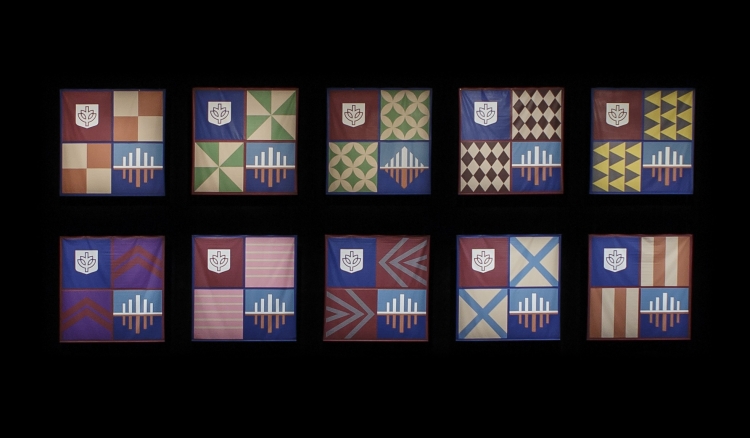 (DePaul University/Jeff Carrion)A community tribute to the late poet and author Toni Morrison. An event honoring Global Asian Studies Asian Pacific American Heritage. A workshop on intimacy in performance to equip students with the proper standards to make film and theatre production sets inclusive and safe for all.
(DePaul University/Jeff Carrion)A community tribute to the late poet and author Toni Morrison. An event honoring Global Asian Studies Asian Pacific American Heritage. A workshop on intimacy in performance to equip students with the proper standards to make film and theatre production sets inclusive and safe for all.
These are just a few examples of projects funded through the Diversity and Inclusion Initiative Grant, a new program launched earlier this year and housed in the Office of Academic Affairs. Proposed by Ruben D. Parra, interim associate provost for diversity and inclusion, and a professor of chemistry and biochemistry, DIIG is an opportunity for the university community to engage with issues of diversity, equity and inclusion on campus. Since the program's launch, 15 grant proposals have been approved. Due to COVID-19, seven will be realized by the end of this fiscal year.
“Rather than only having me imagine the issues or try to capture what's going on, I want to empower others to reflect, examine, celebrate and create solutions," Parra says. “I hope to encourage a community mindset that change is possible, even if it is just little by little."
Full-time faculty members can apply for up to $2,000 in grant funding through the program. Applications are reviewed by Parra and at least one diversity advocate—typically the advocate at the school or college of the faculty member—and funding is awarded on a rolling basis.
“You need to make the case that your proposal will help the university become a more inclusive and welcoming environment, that diversity and inclusion is at the forefront," Parra says. “Additionally, there must be clear outcomes in the proposal and the budget must be reasonable."
Within these criteria, however, the range of possibilities is extensive. Sample projects include book clubs, training sessions on best practices, celebratory luncheons, honoraria for speakers and policy improvement research.
One of the first applications Parra received came from a faculty member in the College of Science and Health who proposed a series of solution-focused listening sessions to assess the climate of the Environmental Science Department as it relates to diversity and inclusion. The budget for this project will support refreshments and funding to pay two students to compile and analyze the data.
“It's fantastic for many reasons, one of which is because they are involving students in the planning and execution of the initiative," Parra notes.
Another grant that was approved will enable the College of Liberal Arts & Social Sciences to host the “Global Asian Studies Asian Pacific American Heritage Month Luncheon: The Rising Voices of Asian-Americans in the U.S."
“That one is an example of collaboration across departments within a college," Parra says. “It will involve students, faculty and staff, and there will be conversations about the impact of Asian Americans in politics, science, economics and so on."
In the short time the program has been in place, Parra has been impressed with the creative ideas put forth by DePaul faculty.
“Maybe you just need a little push or a little bit of money to implement your idea or help coordinate efforts," he says. “That's part of the idea."
DIIG is closely linked to DePaul's mission and strategic priorities, specifically to “ensure a welcoming, engaging, diverse and inclusive campus environment," and there's also an obvious St. Vincent de Paul connection, as Parra explains: “What needs to be done? Please let us know!"
His overall goal is for DIIG to inspire faculty members, in tandem with students and staff, to continue improving the DePaul community across issues of diversity and inclusion—and he hopes the grant program will make a clear impact on the university over time.
“I believe in small steps and small wins," Parra says. “If we keep these conversations going in the community, you won't have to read the mission to understand how much we embrace diversity and inclusion. It will be truly a reflection of who we are as an institution, there for everybody to see."
Visit the DIIG website to learn more and begin the application process.